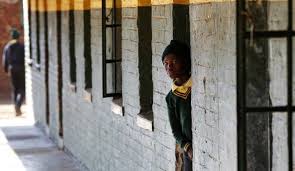With what appears to be increasing regularity—it is all too often we hear about suicidal maniacs taking innocent lives. Many on the left want to use these tragedies to take guns from law-abiding citizens. But the larger issue is lunatics with weapons—whether it is crazy people using their cars as a weapon, or the lunatic that stabbed a random stranger to death in a Maine grocery store last week. It is a mental health problem—not a gun problem! But after the tragedy in Virginia on Wednesday with two reporters being murdered on live TV---everyone is talking about these insane people killing innocent victims.
With the Virginia killings fresh
on everyone’s mind--yesterday it was a lunatic on a college campus in
Starkville, Mississippi that garnered attention. A friend of mine has two children attending
school there, and one of her children was in the hall where the intruder, a gunman
on campus, was arrested. She wrote the
account below about her firsthand
terror on campus yesterday at Mississippi State—and how law-enforcement
agencies intervened at just the right time……
August 27, 2015
It
Was Never Going to Happen to Me
You
watch on the news of school shootings and think about how sad you are for that
town and those families, but it would probably never be something that happens
to you. But they resonate with you. Columbine, Sandy Hook, Virginia, etc.
Everyone can remember something about that event whether by word of mouth or by
watching it unfold live on a local TV channel. So then even yesterday, August
26, when the reporter and cameraman were killed because of a mentally unstable
man, it resonated with me. I’m going into a communication field in a few years.
It hit hard. But surely it was never going to happen to me.
My
high school wasn’t in the best area of Pensacola but I did learn a lot more
than school while I was there. I learned that economic status only mattered on
a tax form, not in friendships. I learned to be comfortable but aware of my
surroundings. And then one day in the spring, I learned something about life…to
cherish it. Because that thing that wasn’t going to happen to me, seemed like
it might happen. A person on a car chase ditches his car outside the school
while we were doing our routine fire drill and files in with us into the
building carrying a gun. We had no idea. It’s a school of 1500 students. The
police came in and knew, as they had been chasing him. We were on lock down for
about two hours but it seemed like all day. So although no shots were fired and
no one was injured, the fear was real. The threat was real. We could’ve been
the next big news story.
Fast
forward three years and it’s a normal Thursday in Starkville, Mississippi.
Normal in the routine, except the weather was a little cooler. I had Public
Relations writing at 8am and went across campus to the drill field in McCool
for Spanish 2 at 10am. We aren’t supposed to have our phones out during class.
But in a class of about 30 young adults, it’s inevitable someone would have
their phone nearby. I’ve never been so thankful someone disobeyed the teacher’s
rule. At 10:16 a campus wide emergency alert, a “Maroon Alert” was sent to
phones everywhere. A girl in my class who had her phone out exclaimed some
explicit phrase I won’t restate. The teacher of course was appauled at the
outburst. The student read aloud, “Starkville
Campus. Active shooter report at Carpenter Hall. Seek safety immediately.”
Suddenly the lecture on informal commands in the usted and ustedes form was
irrelevant. I pulled out my phone already trembling to see for myself.
Immediately screenshot it and sent it in my family group message, especially to
make sure my little brother, a freshman on campus, was out of harm’s way. He
was on his way back to his dorm at the time which was far from the incident.
But I was right across the way from Carpenter.
This was not supposed to happen to me.
10:19
alert: “Starkville Campus. Active shooter
last seen in vicinity of Lee Hall. Seek safety immediately.” The trembling
turns into tears as that is the building in between his original















































